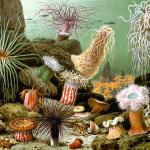Every New Year’s Day, those who have overindulged perform the same ritual. They stagger to the medicine cabinet and try to focus on the Tylenol.
evidence-based medicine
Beneath the culture wars surrounding gender-affirming care are increasingly disturbing reports of organizations putting their thumbs on the guidelines being offered to clinicians.
America’s Frontline Doctors continue to recommend treatments that have been studied and determined not to work.
“The breakthrough came when the farmer began telling Booker about “the hell” he and his neighbors found themselves in.
That is actually a straw-man argument since the reality is that we need both, and these two poles of thinking have been in contention for some time.
Evidence-based medicine, it seems commonsensical; who could argue about using the best evidence available to make treatment decisions?
Randomized clinical trials remain the “gold-standard” evidence in making standards, that is the creation of clinical guidelines. They are a form of best practice creating a “floor” for the care patients receive.









